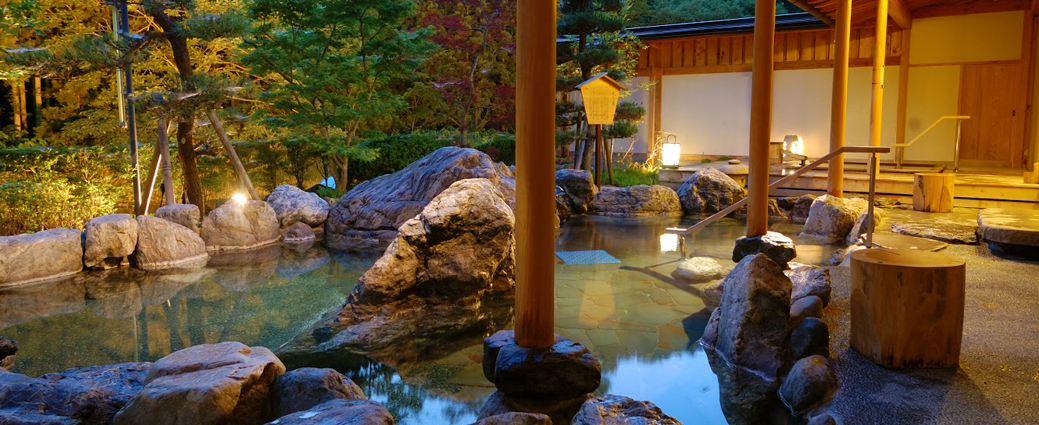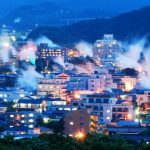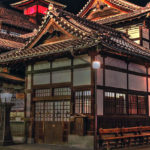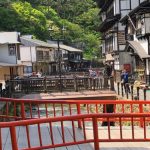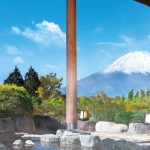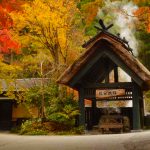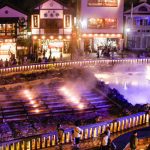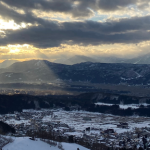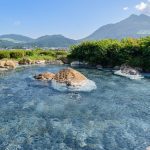A volcanic archipelago with a high rainfall, Japan is a land of abundant natural hot water, and onsen are popular throughout the country. Nothing is as intensely soothing as a soak in geothermic onsen pools, and many of the minerals in the water are thought to have healing properties.
Onsen bathing has its own etiquette, which is easy enough to follow: men and women enter separate pools, leaving their clothes in wicker baskets in separate changing areas (often marked by a red curtain with the character 女 for women and a blue curtain with the character 男for men). The bathing experience is almost a ritual: bathers scrub themselves from head to toe and rinse thoroughly before stepping gently into the soothing waters.
Bathing naked with strangers with only a small towel for cover can be a daunting experience, but once in the steaming water, concerns about modesty – and any other worries at all – melt away. Calming, cleansing, relaxing and nearly meditative, it’s a liberating experience that’s well worth the initial trepidation.
For travellers preferring more privacy, many of the more luxurious ryokan, or traditional Japanese inns, now offer private rotenburo, or open-air baths just outside each guest room, and nearly all ryokan have onsen baths which can be reserved for private use.
Onsen are dotted over nearly every part of Japan, from rustic baths dug into the steep faces of the high Alps to luxurious pools set amidst Zen-like gardens or overlooking sweeping views, or huge marble tubs reminiscent of the springs at Bath. Hakone, Yufuin, Nikko, Ikaho and Kaga are just a handful of the many famous hot spring towns with histories dating back as early as the eighth century. Into Japan invites you to soak up Japanese culture at a ryokan in one of these onsen towns, and experience bathing at its best.

